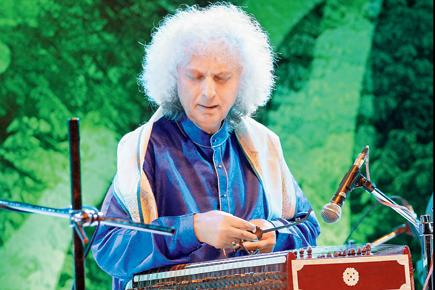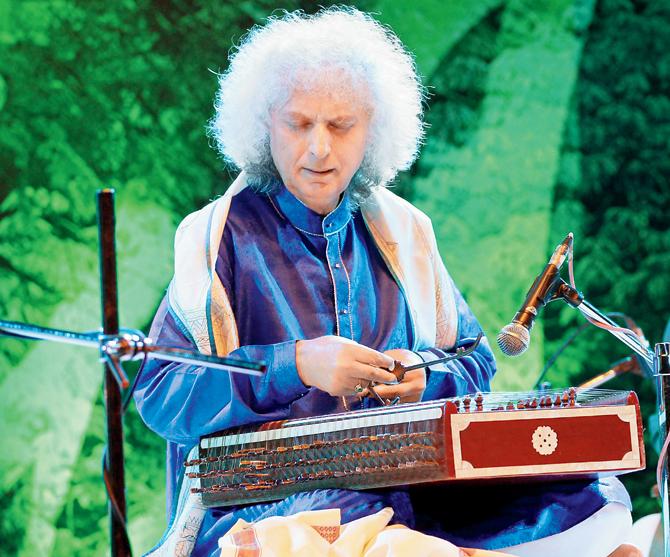The second edition of Anant Gatha features Santoor legend, Pandit Shiv Kumar Sharma. We chat with the maestro about the next generation picking up the santoor, the tradition of Classical concerts and more, ahead of his upcoming concert

Pandit Shivkumar Sharma plays the santoor at a concert
Q. In today’s age, when the audience is always rushing and concerts include several artistes, how does ‘one evening one maestro’ work?
A. Earlier, there was a tradition of Indian Classical music, where an artist performed for four to five hours. We have seen artistes like Pandit Ravi Shankar and Pandit Hari prasad Chaurasia play all night at baithaks. Today, lifestyles have changed. Organisers are under a lot of pressure. They want to present shows like entertainers. Somewhere in their mind they are competing with Bollywood, which is not good. This is different from Bollywood. It is a sophisticated art and has its own set of followers. Too many artistes coming together on one stage, at times, makes me feel like it’s a product. For me, this is an ancient, spiritual form. When Banyan Tree told me about this concept of a concert with one musician on one evening, I loved the idea. I told them that I fully support it. I am eagerly looking forward to it. I have done all-night programmes too, long ago, when there were no police restrictions. There have been a lot of solo concerts in other cities like Kolkata too. In Mumbai, I will be doing this after a very long time. There are people who miss these kinds of programmes. People who like wholesome music without gimmicks will enjoy it.
ADVERTISEMENT

Pandit Shivkumar Sharma plays the santoor at a concert
Q. What can the audience look forward to at your performance at Anant Gatha?
A. We have different programmes lined up. Two fine musicians, Yogesh Samsi on the tabla and Pandit Bhawani Shankar on the pakhawaj will accompany me. Pakhawaj is used in the Dhrupad style of music, which was made popular by the legendary Miya Tansen, the ace musician in Emperor Akbar’s court. So, in the first part of the programme, I will be performing the Dhrupad style with pakhawaj. Then there will be a mix of today’s style and light Classical music, where I will be accompanied by the tabla. I don’t decide the raag that I will perform until I reach the venue. I’m indecisive till the last minute. Even when I do decide, many times, I change my mind on stage. Since programme will take place in between 7.30 pm and 9.30 pm, I will select raags that are usually performed at that time.
Q. When you started out, few were aware about the santoor. What is your advice to students keen to learn it?
A. For four or five decades, I have had students coming to learn from me, from different parts of the world. They perform in different countries while teach as well. I teach only those students who wish to play the Santoor professionally. My son, Rahul Sharma, has been performing internationally for 19 years. My students are free to teach those who wish to learn the instrument as a hobby as well.
Many foreign students wish to learn. I teach only serious students. Before beginning to learn the santoor, it is good for the student to learn a bit of melody. It could be vocals or harmonium. That gives them a better idea of the tunes and makes it easier to learn the instrument. I have also been in talks with santoor makers, to make a version of the santoor with lesser strings — a smaller version, perhaps. This will ensure that beginners don’t have trouble with tuning so many strings. Not every musician is of the same calibre but the tradition will continue.
On: July 9, 7.15 pm
At: Nehru Centre Auditorium, Worli.
Call: 28260674
 Subscribe today by clicking the link and stay updated with the latest news!" Click here!
Subscribe today by clicking the link and stay updated with the latest news!" Click here!






